Belle (André Delvaux, 1973)
Nov
28

Belle (Adriana Bogdan) in front of her cabin on the moors. DPs: Ghislain Cloquet & Charles Van Damme.
poetry
“¡Mexicanos!
¡Vivan los héroes que nos dieron patria!
¡Viva Hidalgo!
¡Viva Morelos!
¡Viva Josefa Ortiz de Domínguez!
¡Viva Allende!
¡Vivan Aldama y Matamoros!
¡Viva la independencia nacional!
¡Viva México! ¡Viva México! ¡Viva México!”La fórmula secreta [Coca-Cola en la sangre / The Secret Formula] (Rubén Gámez, 1965)
Sep
16
El Grito de Independencia
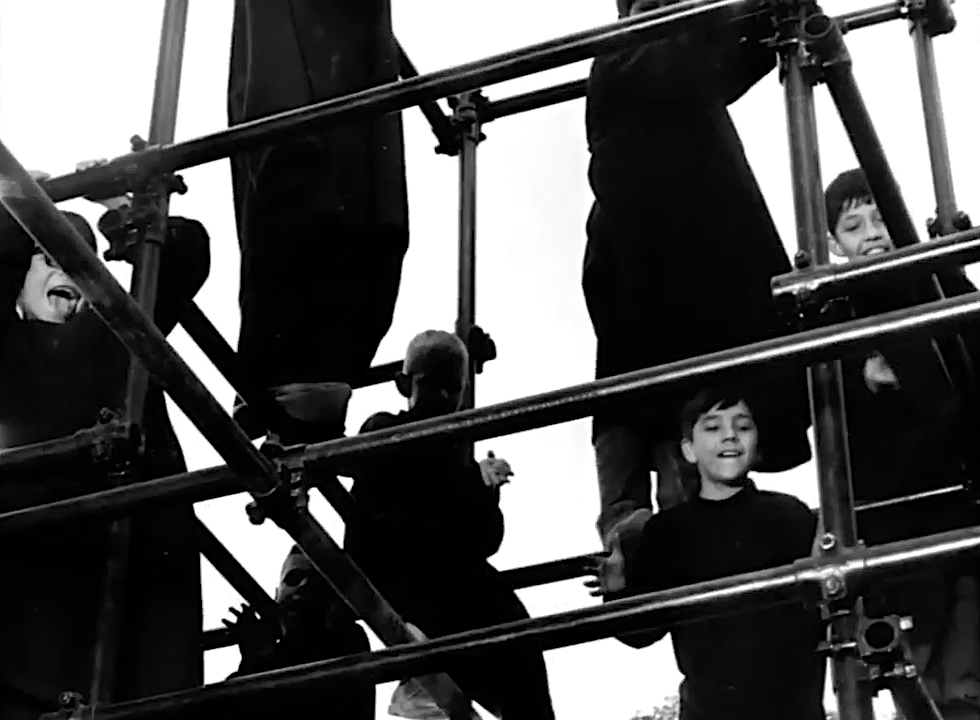
Grinning seminary boys hang from monkey bars. DPs: Salvador Gijón, Rubén Gámez & Segismundo Pérez de Pedro 'Segis'.
El Grito de Independencia: ¡Viva México!
– El Grito
Accompanied by Juan Rulfo's poem, Gámez explores Mexico's identity, and loss thereof. Crying out for the Mexican with Coca-Cola in the blood.
“Calypso the lustrous goddess tried to hold me back,
deep in her arching caverns, craving me for a husband.
So did Circe, holding me just as warmly in her halls,
the bewitching queen of Aeaea keen to have me too.
But they never won the heart inside me, never.
So nothing is as sweet as a man's own country.” Nostos: Il ritorno [Nostos: The Return] (Franco Piavoli, 1989)
Sep
6
Magellan expedition – 1522
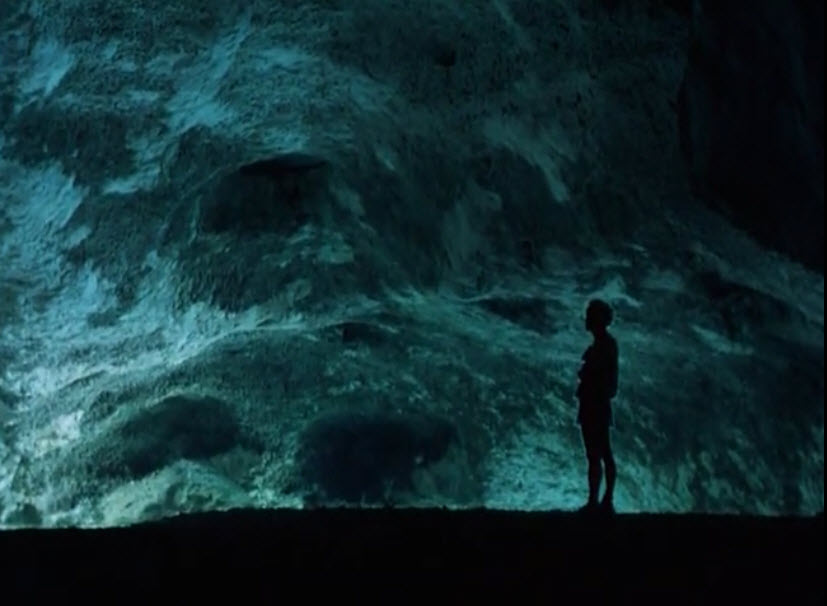
Odysseus (Luigi Mezzanotte) and Poseidon's kingdom, the sea (via). DP: Franco Piavoli.
A seafaring explorer in commemoration of Ferdinand Magellan's (almost) completed circumnavigation in 1522. The Portuguese Magellan was enlisted by Spain to gain access to the Moluccas' spices and other trading goods by sailing west instead of east, thus avoiding the heavily armed Portuguese and Dutch traders who were plundering Southeast Asia, its peoples and cultures.
– Homer, Odyssey, ca. 8th century CE (via)
With the war over, Odysseus returns home by sea, a ten year voyage known as the Odyssey
“But this art of total synthesis that is Cinema, this fabulous newborn of Machine and Sentiment, is beginning to cease its moans and is entering its infancy. Its adolescence will soon arrive, seize its intelligence, and multiply its dreams; we ask that we hasten its development, precipitate the advent of its youth. We need Cinema to create the total art toward which the other arts have always tended.“Combat de boxe (Charles Dekeukeleire, 1927)
Jun
30
Mike Tyson – 1966
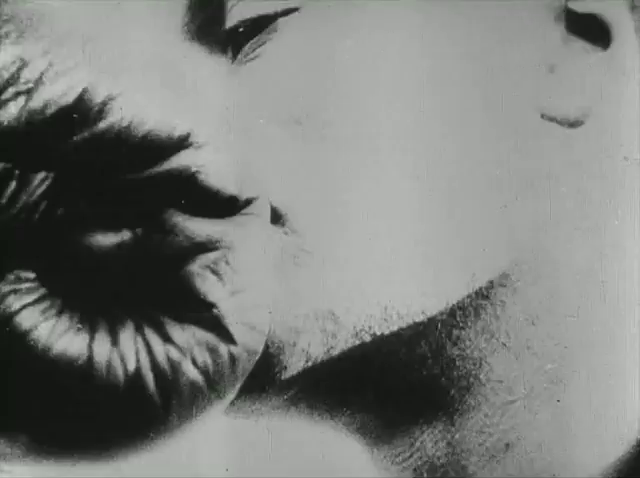
One of the fighters receives a direct hit. The camera is so close that we see abstract shapes, texture and contrast before recognising the scene. DP: Antoine Castille.
A [favourite] athlete in a film role for Mike Tyson's birthday
– Ricciotto Canudo, Gazette des sept arts, 1923 (via)
The match you see is real, between two actual fighters. Paul Werrie's rhythmic poem served as the basis. Everything else is illusion made flesh with what was available. An empty painter's studio, a few friends, footage of a crowd, a deep comprehension of the Kuleshov effect and rapid Soviet-style editing. Dekeukeleire places us from the safe world of the spectator right in the line of fire. But there's no release like in James Williamson's The Big Swallow (1901). Without that gimmick, cinema enters Canudo's realm, as the seventh art.
“Love! Love!”Wholly Communion (Peter Whitehead, 1966)
Jun
11
1965

Allen Ginsberg reciting in front of an enraptured audience at the Royal Albert Hall. DP: Peter Whitehead.
– anonymous poet interrupting Harry Fainlight
Sweet love, renew thy force; be it not said
Thy edge should blunter be than appetite,
Which but to-day by feeding is allay’d,
To-morrow sharpen’d in his former might: So, love, be thou; although to-day thou fill
Thy hungry eyes even till they wink with fullness,
To-morrow see again, and do not kill
The spirit of love with a perpetual dulness. Let this sad interim like the ocean be
Which parts the shore, where two contracted new
Come daily to the banks, that, when they see
Return of love, more blest may be the view; Or call it winter, which, being full of care,
Makes summer’s welcome thrice more wish’d, more rare.The Angelic Conversation (Derek Jarman, 1985)
Apr
23
William Shakespeare — 1564

Two men in tender embrace. DPs: Derek Jarman & James Mackay.
A Shakespearean play or quote for the Bard's (assumed) birthday (1564).
– William Shakespeare, sonnet 56 (Fair Youth)
Accompanied by Coil's brooding lust and Judi Dench's solemn recital of 14 of Shakespeare's sonnets, men cross dreamlike landscapes and dark desires.
“We sought asylum for our love, but the road led us out to the land of the dead.”նռան գույնը [Sayat Nova / The Color of Pomegranates] (Sergei Parajanov, 1969)
Jan
11
journeys
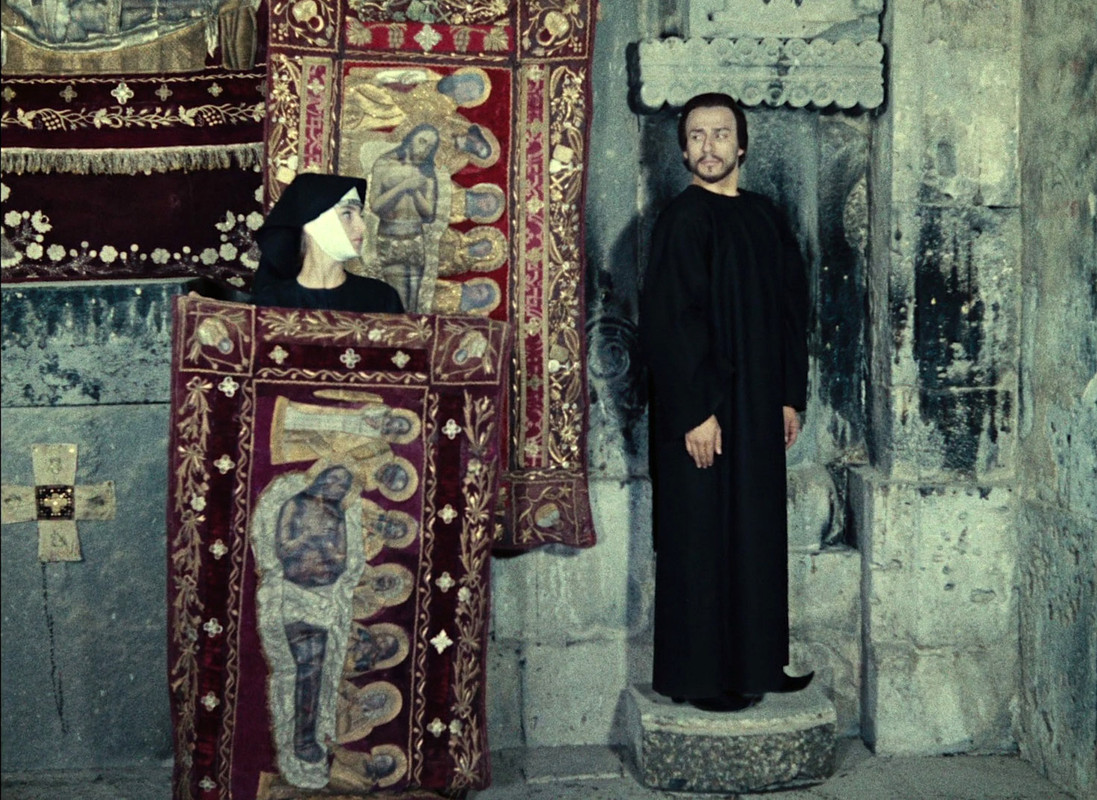
A nun holds up an embroidered cloth depicting a dead Christ surrounded by mourning saints. Next to her a monk in black, resembling poet Sayat-Nova. Screenshot via Screenmusings. DP: Suren Shakhbazyan.
Garnets for January. The garnet is supposed to protect the traveller on his journey, and is named after the pomegranate with which it shares its bloodred colour.
The story of a poet's spiritual journey. The poet, and poems the film is based on is ashough [lover, or travelling musician] Sayat-Nova (b. Harutyun Sayatyan).
“I left forty lira at home, the family is hungry now.”Umut [Hope] (Yılmaz Güney + Şerif Gören, 1970)
Dec
30
National Resolution Planning Day
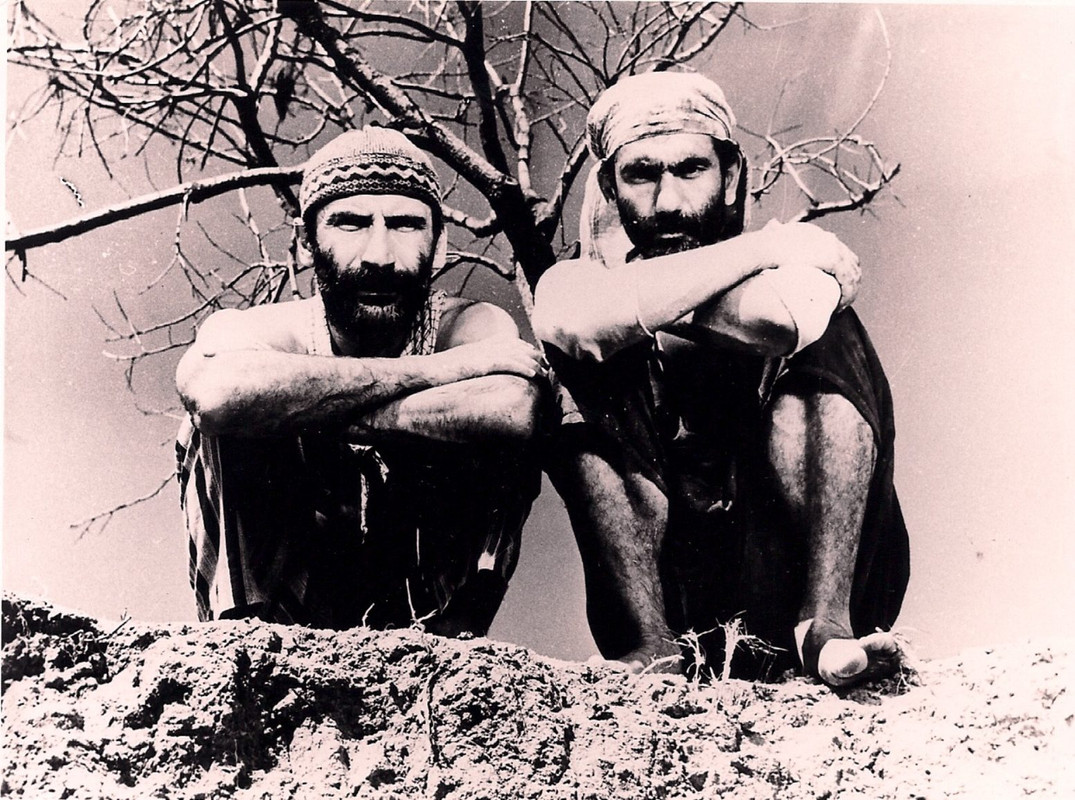
Hasan (Tuncel Kurtiz) and Cabbar (Yılmaz Güney) planning their next step sitting atop of the pit. DP: Kaya Ererez.
Discussing an elaborate plan on National Resolution Planning Day (USA)
Cabbar (Yılmaz Güney), an impoverished, illiterate phaeton driver, loses his already half-dead horse when a rich man crashes into the cart. Now destitute and burdened with feeding his six children, wife and grandmother, Cabbar is offered several ways out. While winning the lottery is not in his stars, his friend Hasan's (Tuncel Kurtiz) and imam Hodja's (Osman Alyanak) wondrous plan to go out into the Kurdish wastelands to dig up an illusive treasure may be his only escape.
– Cabbar
Umut is Turkey's early venture into Neorealismo. Banned by the national board of censorship – the display of abject poverty, characters not observing morning prayer etc etc – the film was smuggled out off the country and into Cannes, where its screening urged the Turkish government to reconsider its decision. It's now seen as one of Turkey's most important cinematic masterpieces.
“He's a peasant. Without looking into his situation, words are all he has.”شكاوى الفلاح الفصيح [El-Fallâh el-fasîh / The Eloquent Peasant] (Chadi Abdel Salam, 1970)
Dec
23
National Farmers Day – India
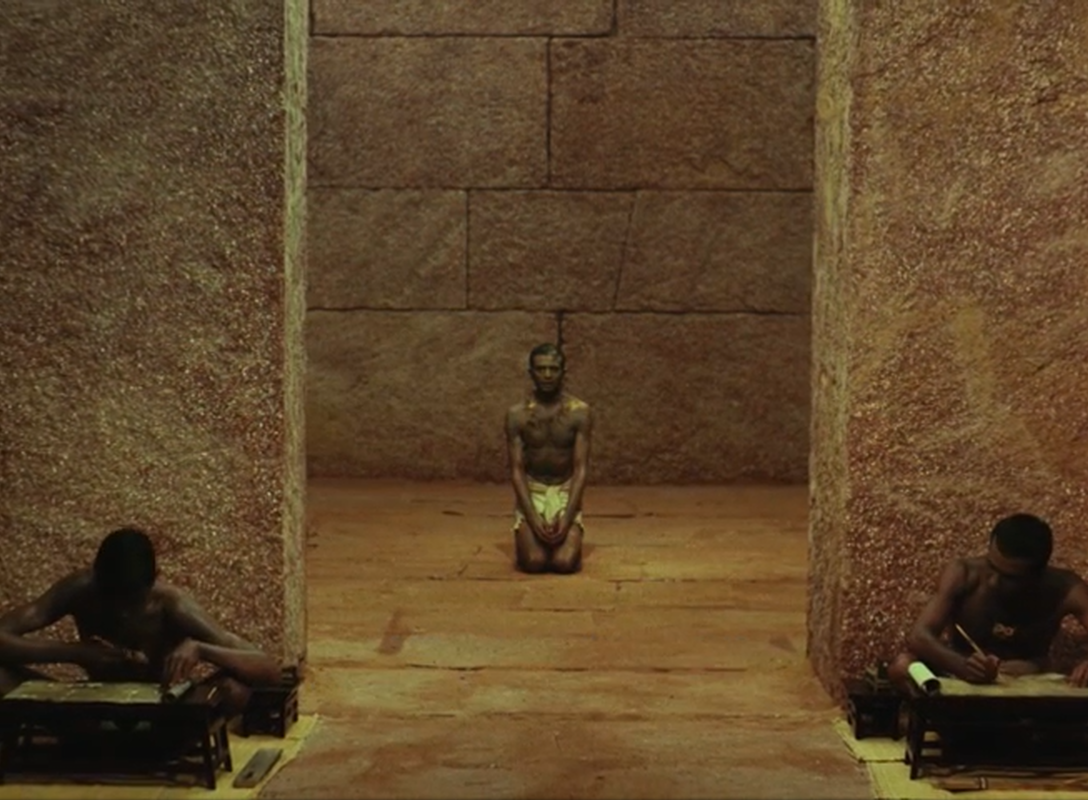
The peasant (Ahmed Marei) in a stone temple, flanked by scribes. DP: Mustafa Imam.
Farmers for Kisan Divas [National Farmers Day] (India)
4000 years ago, Egypt, Middle Kingdom. A peasant, leading his mules past a stream of water, is tricked. With his animals gone, he pleads to the Pharaoh to restore Maʽat, harmony.
Chadi Abdel Salam is not only this film's director, but also a trained architect, later set and costume designer. His eye wordlessly speaks the passing of time in the smallest of details. The withering of ferns, desert sand staining linen, the Sun merging with skin. At once, the universal presence of the gods becomes visible.
“Feelings unspoken are unforgettable.”Nostalghia [Nostalgia] (Andrei Tarkovsky, 1983)
Dec
10
Worldwide Candle Lighting Day


Hands shield something on stone steps. In the next shot, with the hands withdrawn, we see a small, lit candle. DP: Giuseppe Lanci.
Lit a candle on Worldwide Candle Lighting Day (note: the link contains references of child death).
– Andrei Gorchakov